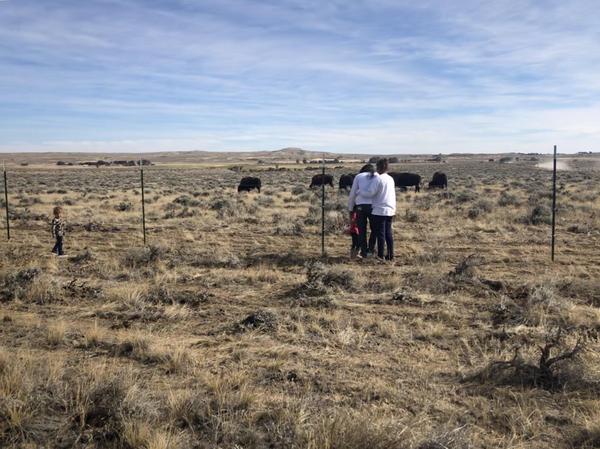
The Indian Child Welfare Act still stands, with some of its key provisions weakened by a sharply divided U.S. Fifth Circuit Court of Appeals this month. The 325-page opinion has no immediate impact on child welfare cases in the Mountain West, but it's likely to be challenged in the U.S. Supreme Court.
Since 1978, ICWA has required that tribal nations have a voice in adoption, foster care and custody proceedings involving their youngest citizens. The federal law was intended to reverse a long legacy of federal and state agencies forcibly removing Indigenous children from their families and communities.
Initially filed in 2017, the lawsuit - Brackeen v. Bernhardt then, Brackeen v. Haaland now - took aim at ICWA's constitutionality, arguing that its preference for placing Indigenous children in Indigenous adoptive and foster homes violated the equal protection clause. Thirty tribal governments in the Mountain West and the states of Colorado, Utah, Montana and Idaho urged the court to reject that argument. Ultimately, the Fifth Circuit's en banc ruling did just that.
"After this decision, and even if this decision stands, most of ICWA is constitutional," said Dan Lewerenz, an attorney with the Native American Rights fund.
Lewerenz said the court upheld what tribes have always asserted, that ICWA is based not on race, but on a child's political status as a tribal citizen. But the court narrowly ruled that certain provisions of the law, including its mandate that Indigenous children be placed with Indigenous foster parents when possible, intrude on the authority of states.
"[The Native American Rights Fund] disagrees with those holdings," Lewerenz said. But he added that the ruling does not impart any "precedential value" requiring other courts to follow suit.
"It really only applies to the Brackeen case," he said. "Any other court, state or federal, is open to reject those holdings. It is of little significance outside of this specific litigation."
Still, if any of the lawsuit's plaintiffs succeed in appealing the case, the U.S. Supreme Court's decision will be binding for courts across the United States. And a Supreme Court rejection of ICWA's constitutionality would have ripple effects for other parts of federal Indian law.
For that reason, Governor Phillip Perez of the Nambe Pueblo, a tribe in northern New Mexico, called the Fifth Circuit's ruling "deeply concerning."
"The Indian Child Welfare Act was enacted to protect the best interests of Indian children and to promote the stability of our tribes, our customs and traditions. This decision by the Fifth Circuit threatens who we are as tribal people and undermines our tribal sovereignty," Perez wrote in a statement.
New Mexico State Rep. Georgene Louis, who also serves as general counsel for the Pueblo of Tesuque, agrees.
"With all the challenges that have been made [to ICWA], it could be eroded. And some of the protections that ensure reunification with a child's tribe might not be there anymore," Louis said.
In New Mexico's recent state legislative session, Louis sponsored a state statute that would have ensured that many of ICWA's provisions were followed in state court proceedings regardless of the federal law's status. But that bill died in committee. In light of the Fifth Circuit ruling, Louis said codifying ICWA statutes at the state level should be a priority.
READ MORE:
Brackeen v. Bernhardt - Indian Child Welfare Act - Native ...






No comments:
Post a Comment
Please leave a comment.